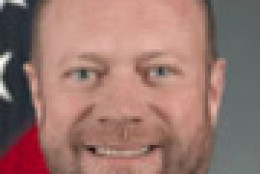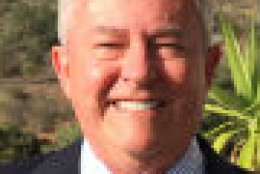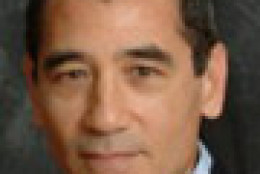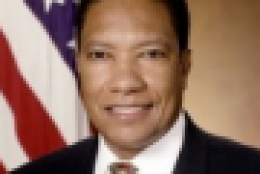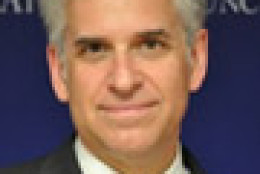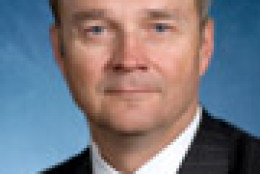Defense Department
-
The Navy has just awarded the first of what it says will be several contracts aimed toward resetting its data center consolidation efforts. As Federal News Radio's Jared Serbu reports, the service wasn't happy with the progress it was making up until now, and the new plan will lean heavily on commercial hosting providers. Read Jared's related story.
June 11, 2014 -
The release of the National Defense Panel's analysis of the Quadrennial Defense Review is just a few weeks away. That panel is Congress' independent review board for the QDR. Nora Bensahel is senior fellow and co-director of the Responsible Defense Program at the Center for a New American Security. She was a guest for Pentagon Solutions on In Depth with Francis Rose. Her latest work is titled "Beyond the QDR: Key Issues Facing the National Defense Panel." She says the QDR doesn't break much new ground, and that's not necessarily a bad thing.
June 11, 2014 -
The first solicitation will address near-term fixes for the current application. The second one will look to commercial technology for a wholesale replacement of the scheduling application. VA says it will build off the contest it ran in 2013 where it awarded $3 million to competitors to develop VISTA-friendly scheduling software.
June 11, 2014 -
Billionaire entrepreneur and founder of SpaceX, Elon Musk, is breaking a major unwritten rule in government contracting. He's suing his customer. SpaceX is suing the Air Force after the department awarded a satellite launch contract to a joint business between Lockheed Martin and Boeing. Brett Lambert is former assistant secretary of Defense for Manufacturing and Industrial Base Policy. He spoke on In Depth with Francis Rose about how common this is within the defense contracting community.
June 10, 2014 -
You've heard about movie directors studying the military to make true-to-life films, but the military is also using Hollywood to prepare for battle. Active shooter situations, improvised explosive devices and car crashes are all a part of the Intensive Surgical Skills course at Strategic Operations, Inc. Backed by the Defense Department, the company has trained more than 750,000 military personnel. Navy veteran and Executive Vice President Kit Lavell joined Tom Temin and Emily Kopp on the Federal Drive to discuss the course.
June 10, 2014 -
The Pentagon says the Chinese military threat is growing because China steals intellectual property from the United States in giant quantities. DoD's new congressional report on China details violations of U.S. copyright and export laws by Chinese intelligence programs stealing national security technology. Gordon Chang, a contributor to Forbes.com, writes their New Asia column.
June 09, 2014 -
The United States needs a national certification program for cybersecurity professionals, according to some cyber experts. Sean Kern, assistant professor of cybersecurity at the National Defense University, writes about what a cyber certification would include.
June 09, 2014 -
It's the elephant in the room: military pay and benefits are overwhelming the Defense Department's budget. But Congress doesn't want to cut them, so it appoints an independent commission to do it by next February. Alphonso Maldon is chairman of the commission. He told Tom Temin and Emily Kopp on the Federal Drive, the nine members have reviewed everything from recruitment to retirement, paychecks and housing allowance to health care.
June 09, 2014 -
Maryland Transportation Secretary James Smith is joining other state, local and Fort Meade officials in breaking ground for a $180 million development to serve the growing number of people using MARC commuter rail service near the Army installation.
June 09, 2014 -
Defense Secretary Chuck Hagel announced Gen. Joe Dunford is the new Marine Corps commandant nominee, and Rear Adm. Walter Carter Jr. has been nominated to lead the U.S. Naval Academy.
June 06, 2014 -
President Obama says most troops will be out of Afghanistan by the end of 2016. Some of the billions of dollars worth of equipment over there will come back to be refurbished. Some will have to be sold or destroyed. All those people combined with all of the gear is a major logistics effort. How can the military pull it off? Army Lt. Gen. Dave Barno (Ret.) is a senior fellow at the Center for a New American Security. He joined Tom Temin on the Federal Drive to discuss the challenges the Defense Department will face as it withdraws from Afghanistan.
June 06, 2014 -
Dr. William LaPlante, the assistant secretary of the Air Force for acquisition is Jared Serbu's guest for the full hour on this edition of On DoD. LaPlante talks with Jared about his five top priorities' for Air Force acquisition.
June 04, 2014 -
Strong intelligence is now the first priority of national security policy, according to Undersecretary of Defense for Intelligence Michael Vickers. He talks about the intersection of intelligence gathering and national security at the Center for Strategic and International Studies. He says the phrase intelligence is our first line of defense isn't just an old cliché anymore.
June 04, 2014 -
Both the Pentagon and Congress are missing a critical piece of national security strategy in the fiscal 2015 National Defense Authorization Act. Barry Pavel, vice president of the Atlantic Council and director of the Brent Scowcroft Center on International Security, joined Francis Rose for Pentagon Solutions. Barry writes policymakers need to consider a formal strategy to address the power of the individual.
June 04, 2014 -
A computer hacker facing up to 20 years in prison is free after helping the federal government stop hundreds of cyberattacks. He taught agencies how to protect millions of dollars and cripple the hacker group Anonymous. Retired Air Force Maj. Gen. Dale Meyerrose was chief information officer for three Air Force commands and three joint combatant commands. He was also the first CIO of the Office of the Director of National Intelligence and is now president of the Meyerrose Group. He joined In Depth with Francis Rose to explain what kind of precedence this sets for future cybersecurity policies.
June 02, 2014




